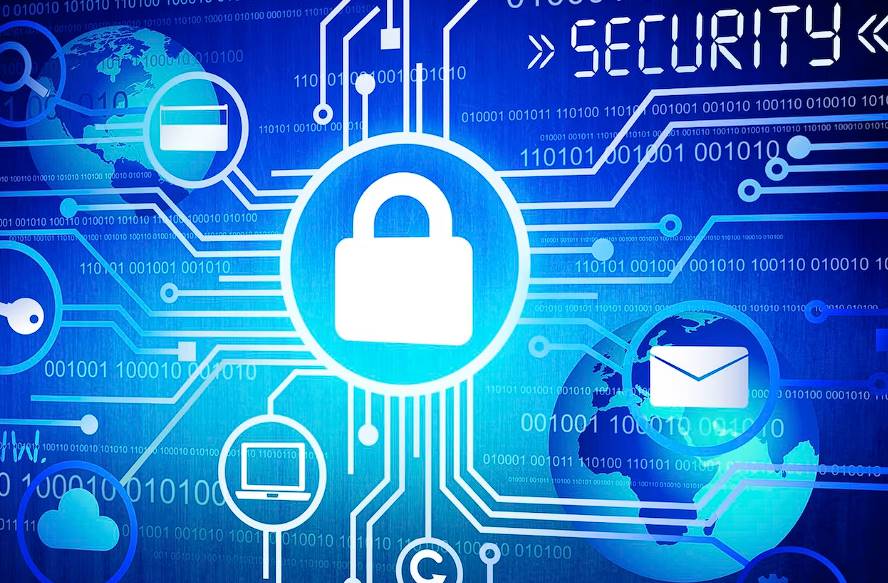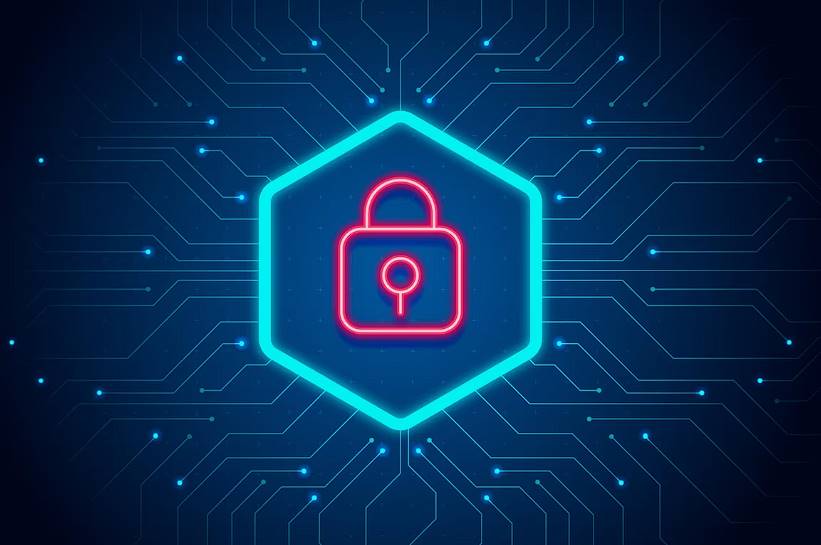For companies of all sizes, cyberattacks have become a major problem. The risk of cyber assaults appears to be increasing as businesses rely more and more on various technologies. Therefore, organisations must recognise the significance of cybersecurity.
Cybersecurity refers to collecting tools, procedures, and policies to prevent harm to a computer network. A company's assets must be protected against cybercriminals via IT security, hence the acronym. Maintaining cybersecurity standards is essential for managing network resources and reaching company objectives without interruption.
These days, cyber security is a topic that everyone is discussing. Let's get to the bottom of why cyber security matters.
What is Cyber Security?
Cybersecurity refers to keeping digital data safe by limiting exposure to threats. Unauthorised use, access, interception, disclosure, or data destruction are all information dangers.
Cybersecurity is crucial in today's interconnected world. Because there has been a noticeable increase in both the frequency and sophistication of cyberattacks. Our exposure to these threats increases along with our reliance on technological systems. Data and systems can be shielded from these dangers thanks to cybersecurity measures.
The Importance of Cybersecurity and the Reasons Why
Some of the most compelling arguments regarding cyber security's relevance to modern businesses include the following.
Increasing cybercrimes
A cyber-attack can devastate any business, no matter how big or small. This is because all firms share vital resources that hackers can exploit. Sometimes, important company or consumer data is at risk.
On other occasions, the issue is reduced to a monetary one. The average business experienced 270 cyberattacks (intrusions into computer systems that gained access to private information) last year, a 31% rise from 2020. Each year brings a new wave of cybercrime; the only defence is robust protection.
Greater reliance on the Internet of Things gadgets
With the advent of IoT technology, we've streamlined many processes, but we've also become an easier target for cybercriminals. There are more potential entry points for a cyberattack on the Internet of Things (IoT) due to the proliferation of sensors and the use of cutting-edge connection and data-sharing technologies built into these devices. If you properly manage your internet-connected devices, even the most sophisticated security measures will be useful.
Increasing reliance on technological devices
We spend so much time on screens, giving cybercriminals a fertile field to sow havoc. The popularity of cloud services, including edge computing, serverless computing, and API services, continues to rise. Container orchestration solutions like Kubernetes provide automation and dynamic process adaption.
Because of the severe impact they can have on a company's operations, attackers are targeting APIs that enable hyper-automation.
Cryptocurrency and the Dark Web
The deep web, sometimes known as the dark web, is a network of sites inaccessible to public search engines and protected by user IDs, passwords, and other forms of authentication. These sites and pages can only be viewed using specialised web browsers, which protects the privacy of its visitors.
The dark web is like a secret room where horrible crimes, including selling stolen commodities, information, guns, drugs, and people, can be committed.
As a result, cryptocurrency is now frequently targeted by criminals. As Bitcoin's value rises, criminals are motivated by financial gain to launch more attacks. For a long time, users have been fighting off phishing scams, information thieves, and malicious software that changes wallet addresses in memory.
Attacks have been increasing that target smart contracts, the underlying software underpinning cryptocurrencies. As a result, attackers may be able to syphon off millions of dollars from Bitcoin liquidity pools when these new marketplaces become vulnerable to sophisticated operations (such as the flash loan attack).
Developing ransomware
Currently, ransomware is one of the most lucrative forms of cyberattack. Because of the attention from law enforcement and the millions of dollars at stake, ransomware techniques, particularly, are experiencing much change. Everything from the cloud to OT/IoT to virtual systems has fallen victim to ransomware.
Any device that can be accessed through a network is fair game. Data theft for double extortion and deactivating security systems will become common, but insider threats and sensitive data will make it more personal.
Popular Methods of Cyber Attack
Recently, numerous high-profile cyberattacks with disastrous effects on organisations and persons have occurred. Information leaks, identity theft, financial accounts, credit card, and SSN theft fall into this category. Most people use cloud-based storage services like Google Drive or Dropbox to keep their files safe and accessible from anywhere. These assaults have shown how crucial it is to have solid cyber defences. Among the most typical forms of cybercrime are:
Phishing Attacks
Phishing is a cyberattack in which consumers are duped into visiting malicious websites or opening harmful attachments. It might result in losing private information like passwords and bank account details.
Malware Attacks
Malware, short for "malicious software," damages systems. It can infiltrate a system, gather sensitive data, and attack other networks.
Denial-of-service Attacks
To deny users access to a system or service is the goal of a denial-of-service attack. One way to achieve this goal is to overwhelm the system with requests or traffic or compromise its stability and functionality.
Ransomware Attacks
Malware, known as ransomware, encrypts data or entire computers and then requests payment to restore access. The system may crash entirely, or vital information may be lost.
Man-in-the-middle (MitM) Attacks
Intercepting communications between a victim and a server is a Man-in-the-middle (MITM) attack. This can be achieved by listening to a connection or sending data to a malicious server.
SQL Injection
An SQL injection attack aims to compromise a system by inserting malicious SQL code into a database through a hole in the application's security. Database access, deletion, and modification are all within the scope of this code. Attacks based on SQL injection can compromise the server's security and allow the attacker to execute arbitrary code.
Protecting ourselves from these and other cyberattacks is an absolute necessity. Data and infrastructure security can be improved by increasing awareness of threats and implementing countermeasures. Consider the need for cyber protection in our increasingly digital society.
Increase in Cyber Attacks and Their Complexity
Cybersecurity is becoming increasingly vital as the frequency and sophistication of cyberattacks rise. Protection from cyber threats is paramount, which is why cybersecurity measures are important. Identity theft, Data breaches, and other cybercrime can all be avoided with proper cybersecurity measures. Strong cybersecurity procedures are essential for businesses to ensure their information and consumers' safety.
Progress in New Technologies
Cybersecurity in the context of technological innovation is crucial for preventing the unauthorised use or duplication of creative works and other forms of intellectual property. This is crucial because it ensures businesses can protect their products and services from imitation. It's also a good way to ensure nobody can readily copy or steal your fresh idea before you disclose it to the public.
Cloud Transformation
The cloud has revolutionised our approach to information technology and opened us up to new vulnerabilities. More and more businesses are transferring mission-critical data and programs to the cloud, making it imperative that they are aware of the most recent cybersecurity dangers and how to defend themselves.
The adaptability of cloud computing is a major asset. However, this adaptability can open up new vulnerabilities in terms of security. One potential difference is that a cloud service provider might use different security measures than a physical facility. Because cloud data is typically stored in several different locations, keeping it secure can be difficult.
Companies need to be alert to the increased dangers they face and take measures to protect themselves. They must collaborate with cloud service providers to set up proper security measures. A cloud security platform for managing and monitoring the cloud infrastructure should also be considered.
Effect on Company Procedures
Online operations are crucial for most firms nowadays. Cyberattacks, which have increased along with internet usage, can have serious consequences for businesses. Businesses require cybersecurity to prevent data breaches, phishing, and ransomware. Data, consumers, and a company's good name can all be safeguarded using cyber security measures.
Keeping Faith with Clients and Workers
Employees and clients have faith that their data will be safe from hackers. Businesses that value their customer's and employees' trust will invest in cybersecurity measures to protect sensitive information. Firewalls, data encryption, and strong passwords are all possible measures. These steps show a company's commitment to customer and employee privacy, which can boost client loyalty.
Establishing Financial Stability for the Company
It is impossible to overstate the value of strong cybersecurity in protecting a company's bottom line. A security breach can have severe repercussions when sensitive information is frequently held digitally in today's interconnected society. It can destroy an organisation's reputation, bottom line, and critical data. Customers' trust is lost, expenses rise, and the stock price falls due to a hack.
It could cause insolvency in extreme circumstances. Because of this, businesses must take precautions to safeguard their information and infrastructure. Investment in IDSs, firewalls, and encryption are all part of this.
Keeping Your Strength in a Rough Environment
Protecting businesses and organisations from cyber threats is crucial to cyber security. By investing in cybersecurity measures, businesses may strengthen their security and make it harder for hackers to break into their systems. Therefore, it can give businesses an advantage over rivals who have yet to make similar investments in cybersecurity. In addition, organisations that cyber-attacks have hit can learn from their mistakes, enhance their cybersecurity, and help other businesses by sharing what they've learned.
Keeping away from Financial Penalties
Cybersecurity is essential for avoiding financial penalties since it protects organisations and individuals from cyberattacks, data breaches, and other online dangers. Strong cybersecurity procedures can protect data and assist businesses and people in avoiding fines and penalties.
Maintain Organisational Function
There are a variety of threats to an organisation's viability. A cyber attack is one of the most worrying possibilities. The importance of cyber security in protecting businesses from cybercriminals cannot be overstated.
The effects of a cyberattack on a business can be far-reaching. For instance, they may cause crucial information deletion, business suspension, or monetary losses. Cyberattacks can be extremely dangerous and, in some circumstances, even life-threatening. Therefore, businesses require robust cybersecurity measures to safeguard themselves.
Having a solid plan in place to deal with cyber incidents is crucial. Actions to be taken during a cyberattack are detailed in this document. A plan like this ensures businesses can react swiftly and efficiently during an attack. Employee training is another crucial part of cybersecurity. Workers need to be educated on identifying cyber dangers and what to do in response. This education can help lessen the possibility of a devastating cyberattack.
Cybersecurity is crucial because it safeguards businesses from a wide variety of threats. Successful attacks can be mitigated or prevented if businesses implement robust cybersecurity safeguards.
Conclusion
Cybersecurity is important for businesses because hacks are on the rise as people use more and more technologies. It includes putting together tools, procedures, and policies to keep cybercriminals from doing damage to a computer network and to protect assets from them. Cybersecurity steps are needed to manage network resources and keep a company's goals from being interrupted.
Cyberattacks are becoming more common and more sophisticated, which shows how important cybersecurity is. This is because businesses share important resources that hackers can use. Last year, the average business was hit by 270 hacks, which is 31% more than in 2020. As we use more Internet of Things (IoT) gadgets, cybercriminals have more ways to get into our systems. Cybercriminals are more exposed now that cloud services like edge computing, serverless computing, and API services are becoming more popular.
Cybercriminals are also becoming more interested in cryptocurrency and the dark web because they can take advantage of weaknesses in these systems. Ransomware is becoming a popular way for hackers to make money. It targets devices connected to networks, steals data, and hurts people. So, businesses need to put cybersecurity steps at the top of their to-do lists to protect their assets and keep a safe digital environment.
Cyberattacks are happening more and more, doing a lot of damage to businesses and people. Cybercrime usually takes the form of attacks like hacking, malware, denial-of-service, ransomware, Man-in-the-middle (MITM), and SQL injection. As hacks become more common and more complicated, cybersecurity measures are more important than ever to stop identity theft, data breaches, and other forms of cybercrime.
Cybersecurity is important in the context of technological progress because it stops original works and intellectual property from being used or copied without permission. Transformation to the cloud has also created new security holes, so it's important for businesses to know about the latest cybersecurity risks and how to protect themselves. Businesses must work with cloud service providers and set up a cloud security tool to manage and keep an eye on cloud infrastructure.
Most businesses today depend on their online processes, and cyberattacks can be very bad for them. Businesses need to spend money on cybersecurity measures to protect private information, keep the trust of customers and employees, keep their finances stable, and keep the organisation running. Investing in firewalls, encryption, and intrusion detection systems (IDS) can help companies stay safe and avoid fines.
When businesses invest in cybersecurity steps, it makes it harder for hackers to get into their systems. This gives businesses an edge over competitors who haven't invested as much in security. Organisations that have been attacked online can learn from their mistakes and make their security stronger.
Cybersecurity is important if you want to avoid fines, keep your data safe, and help companies and people avoid penalties and fines. Training employees is another important part of cybersecurity because it teaches workers how to spot computer threats and deal with them. Overall, businesses need strong cybersecurity measures to keep themselves safe from various threats and keep their operations running smoothly.
Content Summary
- Cyberattacks are a growing concern for companies of all sizes.
- As businesses increase their reliance on technology, the risk of cyberattacks escalates.
- Organisations must appreciate the profound importance of cybersecurity.
- Cybersecurity encompasses tools, procedures, and policies to shield computer networks.
- The acronym IT security emphasises protecting a company's assets against cybercriminals.
- Maintaining cybersecurity standards is pivotal for smooth business operations.
- The digital age has seen an unprecedented discussion about cybersecurity.
- Cybersecurity is about safeguarding digital data from threats like unauthorised access and data destruction.
- The interconnected world today makes cybersecurity more important than ever.
- Increased reliance on technology magnifies our vulnerability to cyber threats.
- Cybercrimes are escalating, endangering all businesses irrespective of their size.
- The average business encountered a 31% rise in cyberattacks in the past year.
- The Internet of Things (IoT) offers cybercriminals more potential entry points.
- Our increasing screen time offers fertile ground for cybercriminals.
- Rising popularity of cloud services makes them attractive targets for cyberattacks.
- APIs enabling hyper-automation are under constant threat due to their critical role in businesses.
- The dark web hosts illicit activities shielded from public view.
- Cryptocurrencies, especially Bitcoin, are increasingly under attack by cybercriminals.
- New forms of cyberattacks are targeting underlying software of cryptocurrencies.
- Ransomware has emerged as a lucrative form of cyberattack, with techniques constantly evolving.
- Recent cyberattacks highlight the need for robust cybersecurity measures.
- Phishing attacks deceive users into engaging with malicious content.
- Malware attacks can breach systems to gather sensitive data.
- Denial-of-service attacks aim to deny users access to certain systems.
- Ransomware attacks encrypt data, demanding payment for restoration.
- Man-in-the-middle attacks intercept communications to gain illicit information.
- SQL injection attacks exploit vulnerabilities to compromise systems.
- Awareness of threats and implementation of countermeasures can bolster data security.
- With cyberattacks becoming more intricate, cybersecurity's role is ever-growing.
- Proper cybersecurity can prevent identity theft and data breaches.
- Cybersecurity protects intellectual property from unauthorised use or imitation.
- Cloud transformation exposes businesses to new cybersecurity vulnerabilities.
- While cloud computing offers adaptability, it also presents new security challenges.
- Collaborating with cloud service providers can enhance cloud-based cybersecurity.
- Increased internet usage in business operations makes cybersecurity paramount.
- Investing in cybersecurity reflects a company's commitment to its stakeholders.
- A security breach can severely impact a company's reputation and finances.
- Proactive investment in cybersecurity tools can prevent potential insolvencies.
- Strong cybersecurity can give businesses a competitive advantage.
- Sharing lessons from past cyberattacks can benefit the entire business community.
- Adequate cybersecurity measures can help avoid financial penalties.
- Cyberattacks can disrupt business operations, emphasising the need for cybersecurity.
- Companies must have a comprehensive plan for dealing with potential cyber incidents.
- Employee training on cybersecurity can significantly reduce risks.
- Educating workers about identifying and responding to threats is essential.
- Cybersecurity shields businesses from a myriad of potential threats.
- Implementing robust cybersecurity measures can prevent or mitigate successful attacks.
- Cyber threats can range from data breaches to potential life-threatening incidents.
- A cyber incident response plan ensures a swift reaction during an attack.
- Emphasising cybersecurity is paramount for the safety and continuity of modern businesses.
Frequently Asked Questions
Remote work and mobile devices have expanded the attack surface for cybercriminals. As such, businesses need to implement robust mobile device management and remote work security solutions.
Cybersecurity is critical for protecting intellectual property and trade secrets from theft or espionage, ensuring businesses maintain their competitive edge.
Small businesses can prioritise cybersecurity by focusing on the most critical assets, implementing cost-effective security solutions, and outsourcing cybersecurity services if necessary.
Cybersecurity is closely tied to business continuity because a successful cyberattack can disrupt operations. Proper cybersecurity measures help ensure business continuity in the face of cyber threats.
Businesses should regularly reassess and update their cybersecurity strategies, ideally annually or when significant changes occur in their technology infrastructure. This proactive approach helps them stay ahead of evolving threats.


